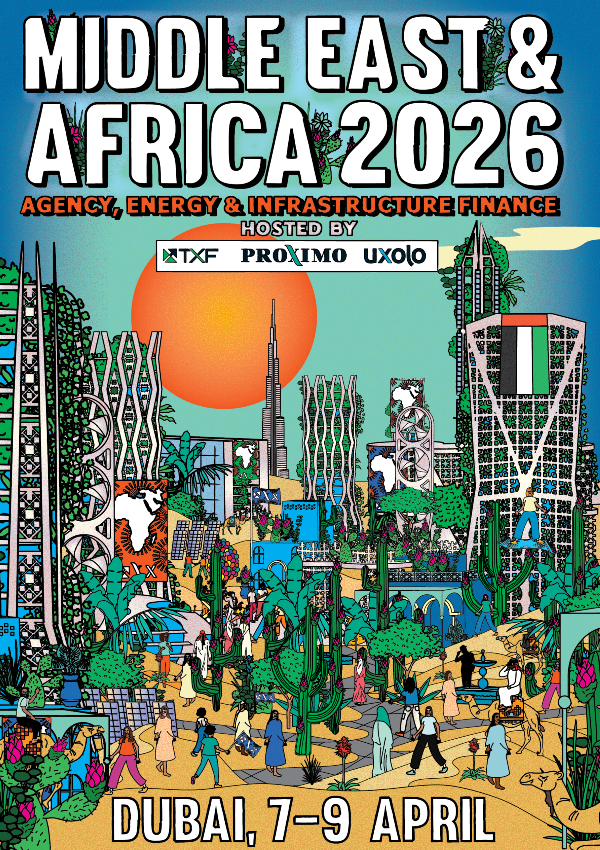Proximo Weekly: The LPO returns for Monolith
The US Department for Energy’s Loan Programs Office (LPO) is back in signing mode again and has approved a conditional loan guarantee for Monolith – its first since 2016.

The US Department for Energy’s Loan Programs Office has approved a conditional commitment for a loan guarantee of $1.04 billion for the expansion of Monolith’s carbon black and hydrogen plant in Hallam, Nebraska. The commitment is the office’s first since 2016, and its first since President Biden named Jigar Shah, a well-regarded renewables entrepreneur, as the office’s head.
Structurally, the guarantee draws on the structures that the LPO has used since its foundation in 2005 under the Energy Policy Act. But the technology is new, and has not attracted large-scale debt financing before. And with hydrogen rapidly moving up project lenders’ agendas, the Monolith project is likely to be highly influential.
Monolith’s investors include Azimuth Capital, Cornell Capital, Imperative Ventures, Warburg Pincus, Perry Creek Capital, Mitsubishi Heavy Industries America, SK and NextEra Energy Resources. It was founded in 2012, with the aim of using natural gas, rather than oil or coal tar, to produce carbon black, which is used in vehicle tyres or as a pigment.
The company was formed with the acquisition from Kvaerner of a demonstration plant in Canada and the IP for a technology called protected methane pyrolysis. Since then, Monolith rebuilt the Canadian demonstration plant in Seaport, California, between 2013 and 2016, and built the first phase of the commercial-scale plant –Olive Creek 1 – in Hallam, Nebraska.
Monolith’s selling point is its ability to produce hydrogen as part of the process, and its ability to claim that the carbon black fixes at least some of the carbon that is used during production. While the plant currently runs on, and is located for convenient access to, extracted natural gas, plants could in future run on biogas.
Monolith says that it has overcome many of the engineering challenges that have historically been associated with methane pyrolysis, including carbon fouling (its tendency to stick to surfaces during the process) and some variability in the quality of the carbon black produced. It says that Olive Creek 1, which came online in 2021, is capable of producing 5,000 tonnes per year (tpy) of hydrogen, and of sequestering 15,000 tpy of carbon dioxide.
A technology at this stage of development fits in well with how the LPO now describes its mission – providing a bridge to bankability. This involves taking proven new technologies, which have not been built out commercially and helping them get deployed at scale, in large quantities and eventually with full support from commercial lenders. Christopher Creed, a senior advisor at the LPO, says “historically the LPO has been very good at supporting first commercial deployments, and bringing applied engineering skills to bear. Monolith, which already has a demonstration plant running, is very much an archetype of that kind of borrower.”
This mission takes the LPO back to its original 2005 purpose – supporting climate friendly technologies with lower levels of adoption. The office was at its busiest in the aftermath of the 2008 financial crisis, when 2009’s American Recovery and Reinvestment Act widened its ability to support renewables. While the office has pointed to the role that its guarantees played in making large-scale wind and solar mainstream, those technologies were probably bankable at scale – if banks were in any shape to fund on them in 2009.
The LPO says that losses only account for 3.3% of its portfolio, and it was an early lender to Tesla, which at one point last year was worth more than the world’s nine largest car companies combined. But the political storm around failed solar panel maker and guarantee recipient Solyndra was immensely draining, and other recipients of guarantees, including Blue Mountain geothermal plant and the Ivanpah concentrating solar plant, have also struggled. The delayed Vogtle nuclear project has hoovered up $12 billion in guarantees.
The tenor, pricing, terms, and the extent of shareholder support for the Monolith loan are not public, though it seems likely that the guaranteed loan will account for substantially all of the project’s debt requirement, and the lender under the loan would be the Federal Financing Bank.
Creed stresses that “the loan guarantee is a tool, and we can use that tool in a variety of ways.” One option, Creed suggests, may be to deploy guaranteed debt alongside commercial bank debt. Creed can even see a situation where the DoE would guarantee a commercial bank loan, say on a revolving warehouse facility where managing disbursements and repayments would be best handled by the private sector. Another opportunity may be to provide credit support for bond financings – securitisations – of mass deployments of smaller-scale renewables, for instance rooftop solar installations for lower-credit homeowners.
The LPO has about $40 billion in guarantee-making authority to hand, with a large proportion of that directed towards advanced nuclear, fossil fuel decarbonisation and electric vehicle projects. Of the $60 billion in applications received by the LPO by the end of 2021, advanced nuclear and biofuels accounted for about $10 billion each, and hydrogen about $1.9 billion.
So Monolith, in terms of structure and technology, may not be an exact guide to the types of transactions the LPO plans on closing in the coming months and years. But it is a powerful signal that the office is back in business, as well as a clear indication of support from the US government for hydrogen technology, which has attracted huge market interest but has yet to be the subject of a project financing.
Selected news articles from Proximo last week
Louisville university tenders utility system P3
The University of Louisville is inviting statements of qualifications from interested parties for an opportunity to manage and operate the University’s on-campus Utility Systems through a 50- year P3 concession agreement.
Further details surface on goetel FTTH financing
Additional information has come to light on the €345 million project financing of goetel's FTTH network expansion in Germany. The financing will support the roll-out of FTTH infrastructure in northern Hesse and southern Lower Saxony in areas that are largely rural.
ASIA-PACIFIC
ICG refinances MEA portfolio project debt
Infrastructure Capital Group (ICG) has reached financial close on its A$749 million joint acquisition with Shell Energy Operations of Meridian Energy Australia (MEA) from Meridian Energy.
MIDDLE EAST & AFRICA
RMIPPPP deadline for financial close extended
The deadline for South African energy projects that are part of the Risk Mitigation Independent Power Producer Procurement Programme (RMIPPPP) to reach financial close has been extended.
SOUTH AMERICA
Chile opens bids for Coquimbo Hospital concession
Economic bids for the 15-year Coquimbo Hospital concession in Chile have been opened, with CRCC Chile Group presenting the best offer of a fixed construction subsidy of UF421,168 and a fixed subsidy for operation UF135,700.
The Proximo Membership
Join a brand new community of project finance professionals getting unrivalled access to unique analysis, market data and a global portfolio of expert industry events in the energy and infrastructure space. Click here to find out more





